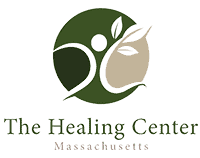Outpatient rehab in Boston can help those who struggle with chemical dependency to find a positive and healthy way of coping. It can allow the flexibility that is needed for these individuals to go to work and school, still take care of their family, as well as begin recovery. Therapies and educational programming provided during this level of care can help to set a foundation in place so that the individual looking to heal and find recovery is able to continue building a healthier life. Learning about outpatient can help provide the knowledge needed to make the decision to seek this kind of help.
What is Outpatient Rehab?
When people think of rehab, it is common to imagine leaving their life behind, checking into a hospital-like setting where they are living there 24/7 and beginning a healing process. Many are unaware of outpatient rehab in Boston that is available to help them along their journey of recovery. Outpatient is a level of care, usually available to individuals who do not need the more in depth care that traditional inpatient programs offer. This type of treatment provides therapies and educational programs that cultivate healing and recovery, however it allows for the individual to maintain their life. The addiction treatment usually takes place during certain hours and days, and then the individual is able to return to their home or sober living environment.
Inpatient vs Outpatient Rehab in Boston
As previously stated, inpatient rehabs provide a more intensive type of care. Individuals are usually under 24/7 monitoring and care, living on campus, and undergoing therapeutic programming. This allows for them to become stable enough before stepping down to a less intensive type of care without in-depth medical monitoring and supervision. It is conducive to ensuring safety and stability. Outpatient rehab in Boston is different. While it still provides the supportive therapies that inpatient programs can provide, it is less frequent, and the individual is able to live their normal lifestyle. It is highly suggested to go through the process and get a full continuum of care, however, outpatient is available for stable individuals who are seeking extra help.
Types of Outpatient Rehab in Boston
There are different types of outpatient rehab in Boston. All of these can be beneficial, and help someone to maintain a clean and sober lifestyle. They provide care and support to those seeking recovery, as well as help to teach and implement new and positive coping skills.
Partial Hospitalization Programs (PHP)
PHP programs are the highest level of outpatient care. This level of care provides care for up to 5 days per week and 8 hours per day. The individual is able to undergo individual and group therapy, as well as psychoeducational programming and relapse prevention in order to maintain their recovery. At the end of the day, they are able to return to a supportive, sober environment and have freedoms available to others who don’t struggle with drugs and alcohol.
Intensive Outpatient Programs (IOP)
The next level of care available for outpatient rehab in Boston is IOP. It is a less intensive type of care, but it is more intensive than traditional outpatient programs. During IOP an individual can participate in drug and alcohol treatment programs during designated daytime and nighttime hours. Once the program is completed for the day, they are able to go home and spend time with family and friends, or return to work or school. It provides ample flexibility for the person to maintain their sobriety and their lifestyle.
Traditional Outpatient (OP)
Finally, traditional outpatient, or OP, is the last level of outpatient rehab in Boston. OP is even less intensive than IOP, providing care less frequently and for less time than PHP and IOP. During OP, an individual can participate in individual and group therapy, continue psychoeducational programming, as well as relapse prevention programs to help with long-term recovery.
The Importance of Relapse Prevention
Relapse prevention is a crucial part of outpatient rehab in Boston. This is where an individual can put a plan in place in case relapse occurs, but it also helps them to learn how to prevent relapse. From learning to implement healthy coping skills to dealing with life stressors, relapse prevention helps provide added support to maintain recovery long-term. These skills are crucial and necessary for individuals seeking recovery, and outpatient programs can help teach them.
We Can Help
Struggling with drug and alcohol addiction can be overwhelming and extremely difficult. Often, individuals believe that there is no help available to them because they have a career or a family to take care of. The problem is, that continuing on a self-destructive path will interfere with these aspects of their life. Many are unaware of the less intrusive help that could be available to them. If you or a loved one are struggling, The Healing Center can help. We offer outpatient care that can aid in the healing process, while still providing flexibility to allow individuals to maintain their daily life. Call us today and begin benefitting from this kind of care.

